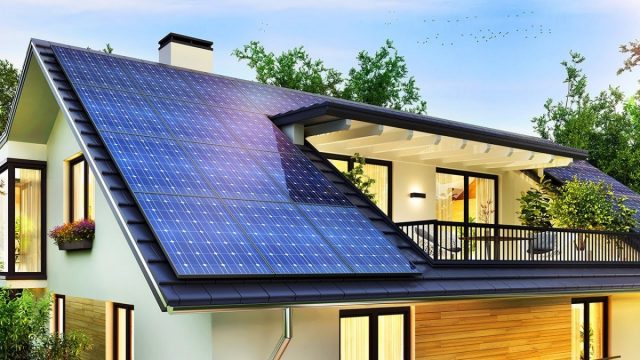Solar power is increasing in popularity. It adds value to your home and reduces your electric bill. Here is a quick guide to solar panels and what it means to add them to your home.
Solar Power System
Contents
A solar power system is more than just a solar panel. There are several components.
Solar Cells
Solar panels are made up of solar cells, which consist of layers of silicon, boron and phosphorus. While the silicon layer acts as a semiconductor, the boron provides a positive charge and the phosphorus provides a negative charge. When the sun hits these layers, the electrons are charged and create electricity.
Solar Panels
Solar panels are primary components in a residential solar power system. While there are emerging technologies that will make use of solar power in many ways, typical home systems use solar panels.
There are four main types of solar panels:
· Monocrystalline solar panels: made from a single crystal of pure silicon, they are efficient and long-lasting, but a lot of silicon is wasted in their production.
· Polycrystalline solar panels: made from many different crystals of silicon which are melted and molded, they are less efficient but waste less silicon.
· PERC solar panels: an extra layer is added to the monocrystalline type of panel, making them more efficient
· Thin film solar panels: thin, flexible panels made with very fine layers, making them easier to install but less efficient overall.
Inverter
An inverter makes the electricity that is produced in a solar panel usable in your home. Most of your electrical appliances are made to be plugged into the power grid, which is AC power. Since solar panels produce DC power, it must be converted in order to be used in your home
Batteries
If you didn’t have batteries attached to your system, you wouldn’t have any power when the sun went down. Batteries can be one of the most important parts of your system.
There are many different types and sizes of batteries, but solar system batteries are one of these four types:
· Lead acid batteries: these have been around since the 1800s and are the cheapest, but they also have a short life span.
· Lithium ion batteries: new type of battery, popular for electric vehicles. They require almost no maintenance, but they are more expensive.
· Nickel batteries: not widely used, but durable, though they contain cadmium, a toxic element.
· Flow batteries: these are emerging technology, contain a water-based electrolyte and have a 100% depth discharge, making them very efficient.
Charge Controller
Charge controllers do exactly what their name implies; they control the charge as it goes into the batteries. This is important to maintain battery health and for safety.
Mounting System
Solar panels are often mounted on your roof, but they can also be mounted on the ground. A mounting system keeps solar panels in place and can even allow panels to be adjusted to get the most rays from the sun. What is net metering?
Advantages to Solar
If you are already looking into solar panel systems, you are probably aware of some of these advantages of using solar power:
· Quiet, clean source of energy,
· Reduced electric bill,
· Produced locally so it doesn’t have to be transported,
· Has few associated safety risks associated, compared to fossil fuels,
· Low maintenance costs,
· 100% renewable.
Disadvantages to Solar
Every type of energy source has both advantages and disadvantages, and you should be aware of both.
· The sun doesn’t always shine,
· Initial cost is high,
· Some locations make it inefficient,
· Size is limited to your space,
· Low energy conversion rate.
How much Does it Cost?
Solar power systems vary widely in cost, depending on many factors, such as how big of a system you need. How much electricity you use will determine the number of solar panels for your home.
There are many factors that contribute to the cost of your system. What types of components you choose will play a big role in how expensive your system is.
How Long do They Last?
Since solar power systems are made up of many components, and each component has a different lifespan, there is not a straightforward answer to this question. Generally speaking, a system will last 25-30 years before needing to be replaced, but if you choose better quality products, they will last longer.
Solar power systems are a big expense for a homeowner. If you sacrifice quality in any of the components in order to get a better price, your system will be less efficient, will require more maintenance and won’t last as long.
Find out More
There is a lot to know about solar panels and solar power systems. But there are many ways to learn about the solar industry, including online courses and websites. Hopefully, after reading this quick guide, you will have a better idea of where to go for your next answers.


